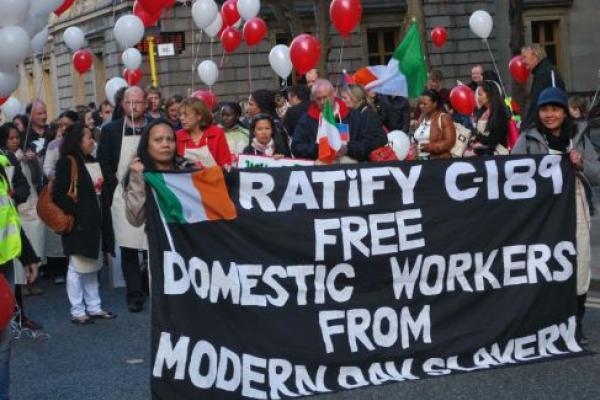North America is home to an estimated 1.5 million trafficked persons alone. Many of these people are domestic workers—an industry with a growing worth of $8 billion in profits every year.
Many domestic workers in the United States are hard working people who enjoy their jobs and have fair working conditions. But the private and unregulated nature of the job does make these workers vulnerable to exploitation and sometimes a destination job for trafficked women.
This is the problem that authorities grapple with: how to regulate a global industry where workers are so open to exploitation and abuse.
Enter Convention 189—a document that creates international law preventing the trafficking and exploitation of domestic workers like Erwiana. This new international law deals with much of the complexity of the problem while still allowing domestic workers to earn a fair living and bargain for their conditions.
National governments have begun to sign on to Convention 189, but the U.S. and other larger countries are lagging behind in its support for tougher global protections for domestic workers.
For many, these new global protections can’t come fast enough. We know that the more countries like the U.S. sign onto Convention 189, the more robust the law will be and the better the protection for domestic workers.
Occasionally our governments need reminding that the plight of some of the most vulnerable must become a priority. Join me in calling on the United States to support global protections for domestic workers by ratifying Convention 189.
Read the Full Article

